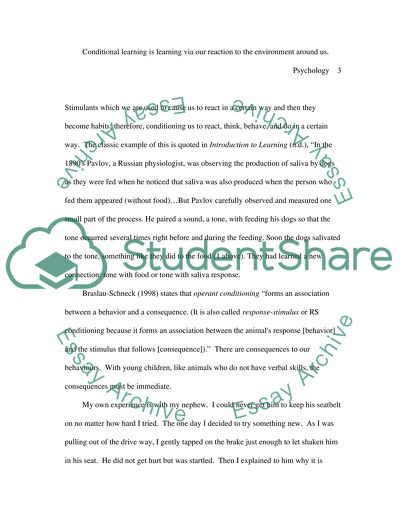Psychology true learning Essay Example | Topics and Well Written Essays - 500 words. Retrieved from https://studentshare.org/psychology/1534779-psychology-true-learning
Psychology True Learning Essay Example | Topics and Well Written Essays - 500 Words. https://studentshare.org/psychology/1534779-psychology-true-learning.


